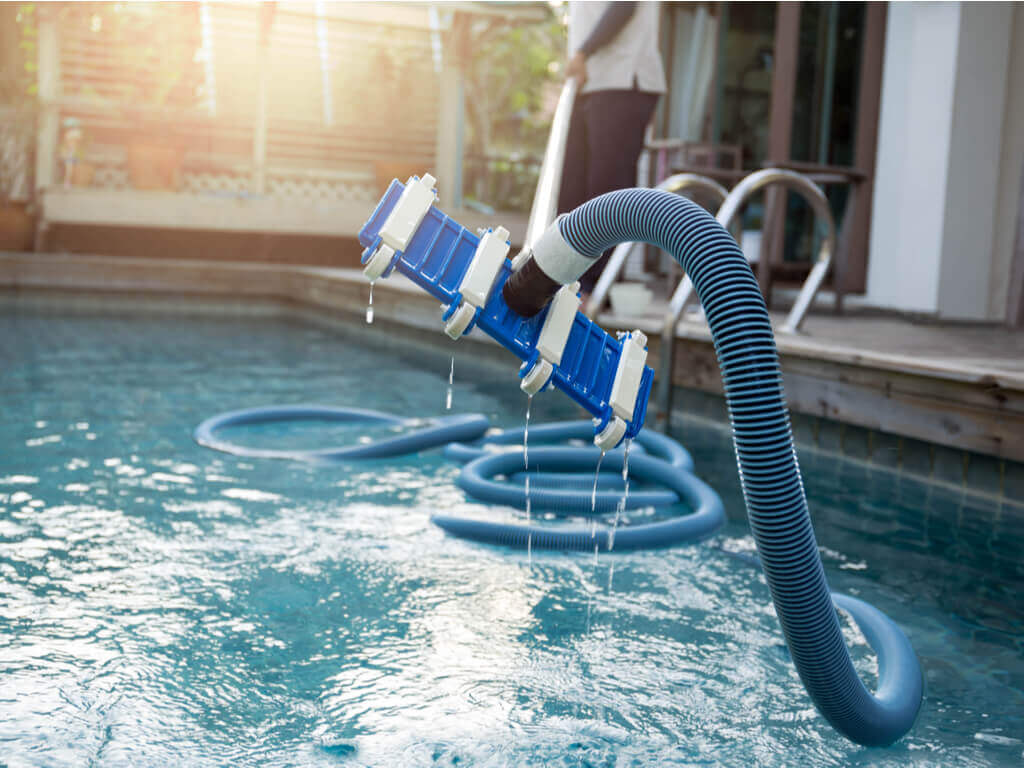Frequently Asked Questions About Pools

Having a pool is every kid’s (and secretly every adult’s) dream. Who wouldn’t want a pool? It’s the perfect spot to unwind after a long day at work or to host the party of the year that everyone will be talking about. Though we would all want a pool, taking proper care of one is no easy task and often goes overlooked. There are many things to consider when managing your pool. Here are some frequently asked questions about pool maintenance so that you can be ready when you get your pool.
What do I need to maintain my pool?
Proper maintenance of a pool is impertinent if you want it to last in good condition. While there are many expensive gadgets that can keep it clean, you only need a pool vacuum, pump, filter, brusher, skimmer, and chemicals to get the job done.
What is water circulation?
In order to prevent cloudy water or pool algae infestation, you need good water circulation. Ideally, you will want to run your water 24/7 through a filter to ensure a good cleaning, but since it can be quite expensive to do that, 10 to 12 hours will do just fine. You will also want to backwash your filter, which means reversing the flow of water through your filter and shunting the dirty water and built-up contaminants to the waste port to carry them out of your pool.
How often should I clean my pool?
Regularly cleaning your pool is also necessary. You will need a net skimmer, pool brush, and pool vacuum so that you can clean the walls and floor of your pool at least once a week. You could also invest in an automatic pool cleaner to make your life a little easier, but this will not replace the need to skim and brush your pool.
What is water testing?
Balancing your water chemistry is important so that the water in itself is safe to be in. You should invest in pool water testing so that you can test the pH of your water the level of active sanitizer. By testing these two factors at regular intervals, you’ll understand how bather load, weather, and product application affect the water. The ideal range for your pool is 7.4 to 7.6. If your pool is too basic or acidic, you will want to add certain chemicals to your water to adjust the pH. Test your pool water two or three times per week.
What is filtration?
The filter is one of your most important pieces of equipment as it removes both visible debris and most microscopic matter. You will need to backwash your filter so that you can get rid of all the leftover contaminants. In addition to this, you will need to chemically clean it since backwashing won’t be able to get rid of any oils and deeply embedded debris.
How do you open your pool?
Opening up your pool can be a simple and easy process if you know what to do and have some helpers with you. In short, you will need to do the following to open it up properly:
- Remove your winter cover. Clean it, then protect it by storing it in a cool, dry place.
- Remove leaves and debris from the pool bottom.
- Inspect your plumbing and check all connections for proper installation and operation.
- Add water up to the level recommended by the manufacturer.
- Once the water is at the desired level, add an algaecide, as recommended by your pool care professional and shock the pool.
- Run the filter until the water runs clear.
- Check the water balance.
If you still have questions about your pool or want to invest in one, contact Aqua Leisure today!
Posted by Aqua Leisure Pools & Spas in Pools

